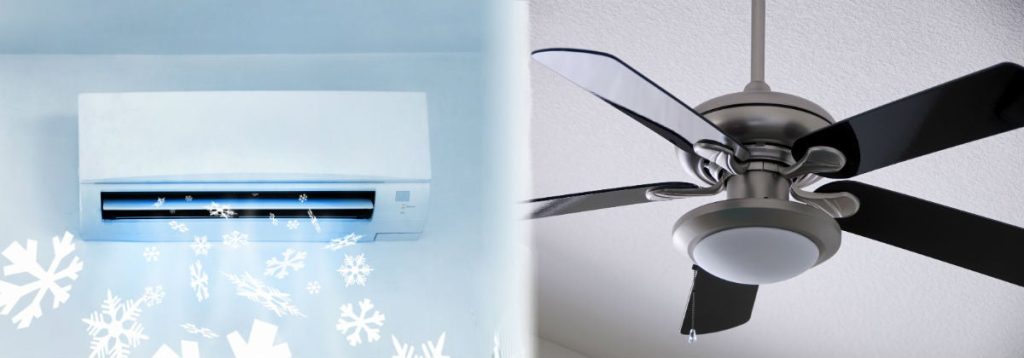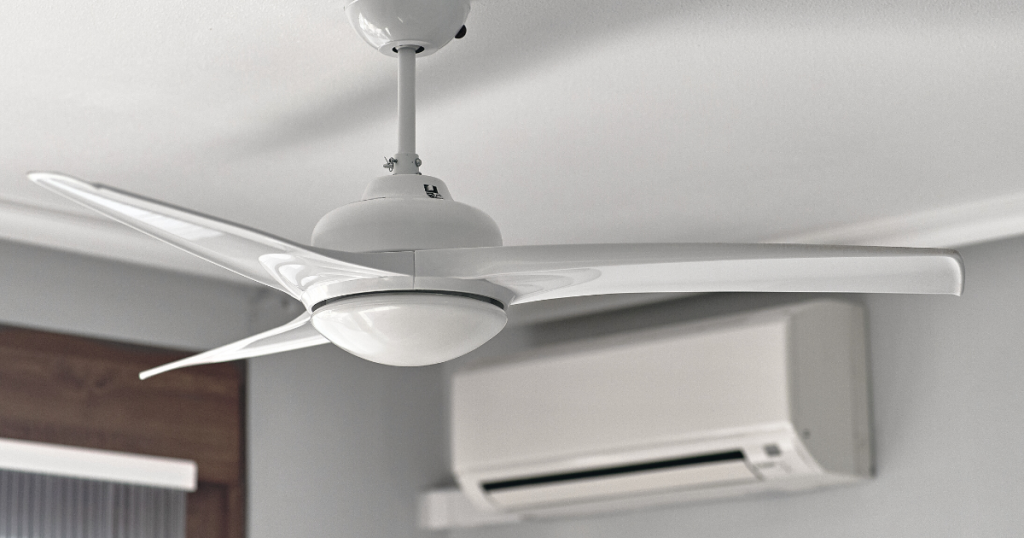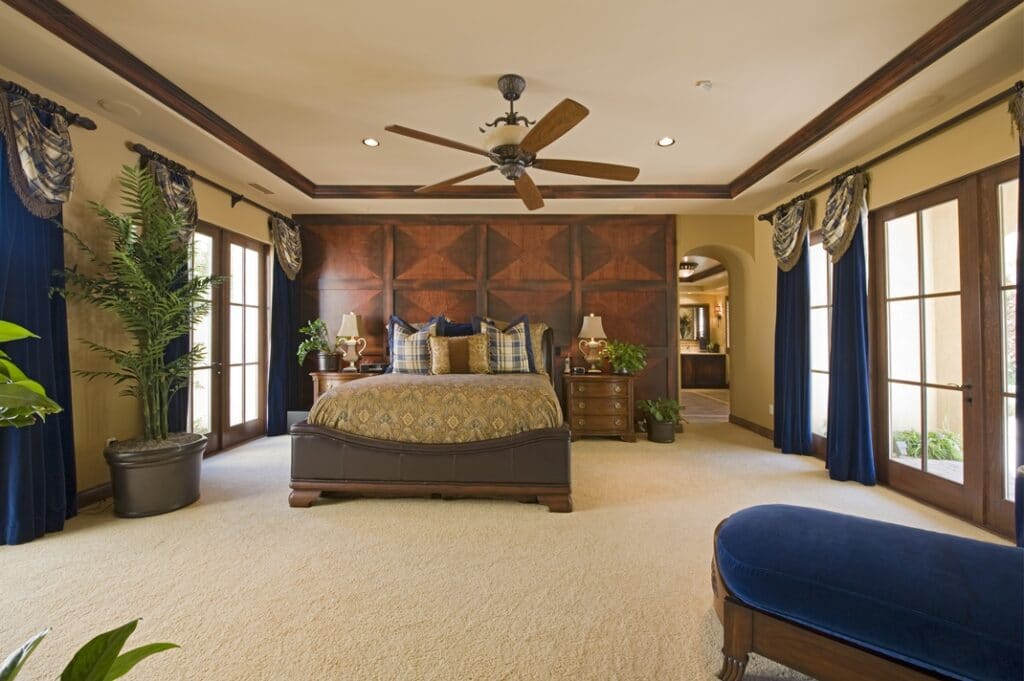The strategies to combat the heat are varied, but the ones that always come to mind are fans and air conditioners. Each has its advocates and detractors, but the truth is that there is no system strictly superior to the other. That is why it is convenient to make an objective analysis of the advantages and disadvantages of each one, to make a choice based on our needs.
Common Types of Devices

Among both air conditioners and fans, different types can be distinguished depending on the criterion we refer to. Perhaps one of the most important differences is the installation. In both cases, we can find appliances that require installation and others that can be considered portable.
Air conditioners work by “transferring” heat from inside the building to the outside, more or less like a refrigerator does. Among air conditioners, the most common are the installed ones. These have an indoor device that is responsible for cooling us (or giving us heat) and a device that is installed outside in charge of dissipating the heat. A (more or less) portable version of these is the “penguin”, which dissipates the air through a duct that we take through the window to the outside.
A distinction is made between ceiling fans and portable fans. Ceiling fans are the most effective, capable of circulating air throughout the room in which they are installed. In addition, like air conditioners, they can help to maintain thermal comfort in both summer and winter, moving the cold air upwards and the hot air downwards.
Thermal comfort and actual temperature

Air conditioning systems have an important advantage over fans because they cool the air rather than simply generate air currents. These devices will bring the temperature of the room to the temperature set by the thermostat. However, their energy consumption will depend on the difference between the room temperature and the temperature set by the thermostat.
Fans do not cool the air but they can reduce our thermal sensation up to five degrees. This can give us the relief we need on a hot day, but it implies an important limitation, and that is that if the air that “blows” on us is above our body temperature, the fan will heat us more than it cools us. The temperature limit that is usually set is 35 degrees Celsius. At higher temperatures, the device should be turned off.
Both appliances can be used together

In cases of extreme heat, the air conditioner can lower the temperature a few degrees to make it possible to use the fan. As the cost of air conditioning is relative to the temperature differential we can use the fan to lower the thermal sensation a few more degrees without spending more.
Combining systems has a further advantage, especially if we use ceiling fans since these will facilitate air circulation, which in turn will make the temperature more stable by not making the air conditioning on and off too often.
It depends on the temperature and the humidity
The fan has one more limitation and that is it works best when the environment is not too dry. The absence of humidity can render this appliance useless, so the air conditioner is also the only viable option in a very dry environment. However, it should also be noted that air conditioning will further dry out the environment, which is not desirable.
Using a humidifier (or other more homemade systems such as water bowls) can be useful if we want to use a fan in a dry environment and if we are going to use air conditioning. If we opt for the latter, it is also a good idea to pay attention to our hydration and drink water.
Efficiency is as important as effectiveness
If fans have a clear advantage over air conditioning, it is their lower energy consumption, which can be 10 times lower. On average, air conditioning accounts for 1% of electricity consumption in households, which translates into about 40kWh.
The cost of each system will depend on whether we install a fixed or portable one. It should be taken into account that ceiling fans can be more useful than portable ones and that portable air conditioners are less efficient than fixed ones.
Health is also important

Both air conditioning and fans can negatively affect our health, but fortunately, we have at our disposal tools to avoid possible damage. Our body has room to adapt to cold or heat, but sudden temperature changes are not good for it, even if it is to improve thermal comfort.
Cold can irritate our respiratory tract, even more so when we sleep, as our body temperature drops. For this reason, even if we have an appliance on to cool us at bedtime, it is a good idea to program it to turn off afterward. In the case of the fan, the best precaution is not to have it too close to us when we sleep. The irritations caused by the cold are just a nuisance, the serious problem for our health appears when germs appear in the air conditioning filters that can cause an infection. To avoid this, it is good to maintain these apparatuses, cleaning filters certain frequency.
Weighing advantages and disadvantages
Air conditioning is the most versatile option and the only one that can get us out of trouble when the thermometers approach 40 degrees. But it is also the most expensive option, so its use will depend a lot on our energy budget unless we use it paying attention to details.
Avoiding its use in the hours of greatest energy demand during the day (although these often coincide with the hottest hours of the day) can be a way to prevent our electricity bill from ballooning in summer. Using the air in combination with a fan can also be a way to avoid the worst of the heat without having to lower the thermostat too much.
Natural ventilation and other ways to cool off

Electrical appliances are not the only tools we have to keep cool in summer and during heat waves. A good tip is to keep our homes well insulated from the heat of the street and to ventilate them well as soon as temperatures allow.
Opening the windows to the fresh air can also be a good alternative when we go to sleep if we do not want to have appliances on. Noise can be a determining factor here. Sleeping well during summer nights can be a very difficult task but it is of vital importance since a good night’s sleep is necessary to maintain good health and well-being.
This post may contain affiliate links, which means that I may receive a commission if you make a purchase using these links. As an Amazon Associate, I earn from qualifying purchases.

